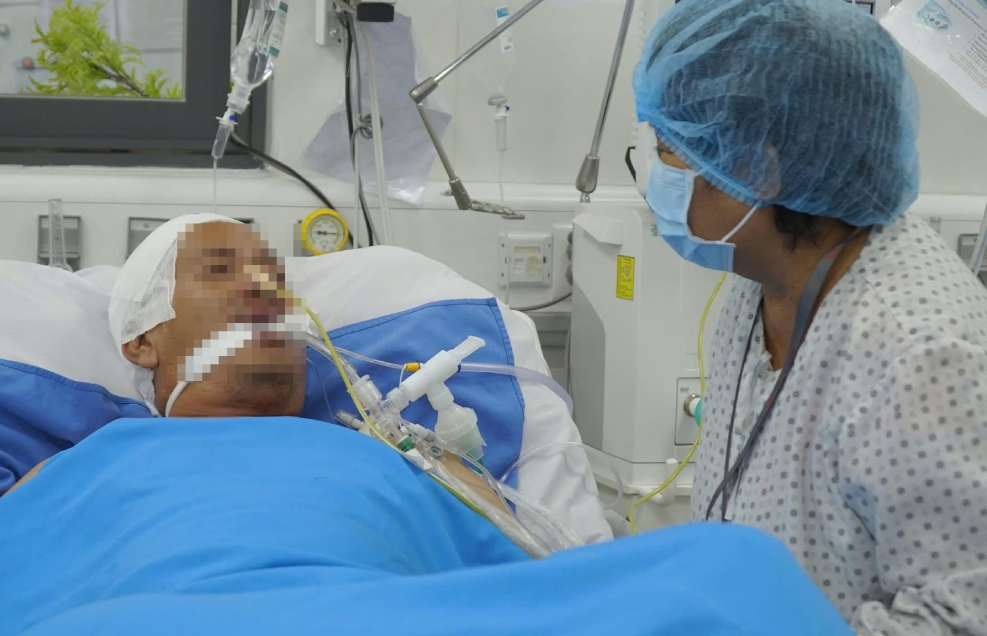
On March 13, Dr Tran Chi Cuong, Chair of the HCM City Neurointervention Association, currently working at a hospital in Can Tho, received a plea for help from Thuy, from Gia Rai in Bac Lieu, who brought her son N.V.T to Can Tho Hospital for treatment. T had a second stroke, but the family had no money for treatment.
“My son leads an unhappy life, please save him, doctors. I only have faith that my son will be saved to return to family,” Thuy cried, covering her face.
At the hospital in Can Tho, doctors diagnosed T with brain hemorrhage, requiring decompressive craniectomy surgery. Without treatment, death was imminent. Doctors decided to save the patient first, and think about fees later.
T lost his father in childhood. When he grew up, he married and had two daughters, but his wife left 10 years ago due to poverty. Daily, Thuy fried cakes for T to sell on the streets.
In mid-2022, T had the first stroke. Though saved, his health declined greatly. He kept working hard to support young kids, and the elderly mother.
The second stroke hit T suddenly and Thuy panicked, unsure what to do with no money or insurance for her son. Neighbors pooled some cash to help the mother hire a car to take him to Can Tho for emergency aid.
Moved by T’s plight, doctors called on the community to support this poor man. After a week, VND95 million was raised, with over VND84 million covering T’s treatment costs. On March 22, T was discharged, returned home. For Thuy, the past 10 days felt like a miracle.
Cuong said the male patient endured two strokes. He arrived in critical condition, requiring ICU emergency care, and a ventilator. Thanks to the medical team’s efforts, T gradually recovered. After extubation, he moved to the Intensive Care Treatment Ward. Recovery signs grew promising—from tube feeding to swallowing on his own, arm and leg strength also slowly returned.
In reality, many patients are brought to hospital with no money. Some reach emergency late due to lack of funds.
With a stroke, every minute of hesitation “kills” 2 million neurons; saving 15 minutes cuts death and disability risk by 4 percent. Thus, treatment time for stroke is precious—the sooner the better.
Dr Cuong believes “patient’s life comes first”; for both rich and poor, treatment indications are same, with no discrimination. Many cases finish emergency with no money for fees, yet doctors encourage staying for care first.
Vo Thu